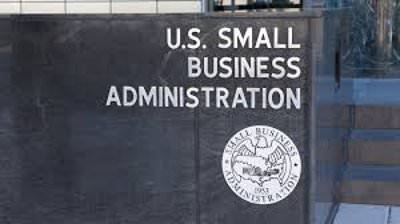SBA 7a LOANS – SOME DOWNSIDES
SBA Loan Alternatives

SBA 7a Loans - Some Downsides
If you're looking for a SBA LOAN ALTERNATIVE - then check the bottom of this page
The following article is re-posted from diversifiedbusinessfunding.com/sba-7a-loans-downsides/
If you are getting ready to start the loan application process for a Government Insured SBA Loan, here are some things you may want to be aware of.
Of course it will depend on the specific bank you go through, but in general, these are the main items you want to consider:
1) SBA 7a loans are written as adjustable rate loans tied to the prime rate.There are no ceilings or floors, so over a 20 or 25 year term, there is a real possibility that rates and payments can shoot up significantly. Additionally, loan fees are often higher than for conventional loans.
2)Most critically, all of the business assets will be tied up to secure the 7a loan, even one collateralized by real estate. Inventory, receivables, and equipment will all be pledged.
3)The lender may offer you a 7a loan, not because it is best for you, but because it is good for him. An SBA 7a loan can provide a quick payoff for the lender because the guaranteed portion of the loan can be sold to investors at a tidy profit.
Here is an excellent article by Business Bank of Texas
Some Inconvenient Truths about SBA 7a Loans
by Ed Lette
May 08, 2015
Since its founding in 1953, the U. S. Small Business Administration has helped thousands of small businesses thrive and grow. By guaranteeing up to 90% of loans to small businesses, the SBA has enabled banks to expand their commercial lending, helping to create jobs and boost the economy. There are two main programs offered by the SBA, the “7a” loan and the ”504” loan. While both of these programs can be beneficial, there are some pitfalls in the 7a loan programs that every prospective borrower should understand before taking the plunge.
Under the 7a loan program, the SBA issues a guarantee to a lender for repayment of up to 90% of the outstanding balance. Depending on the collateral, the loan can also be made for up to 90% of the purchase price, greatly reducing the down payment needed by the borrower. However, there are some serious downsides to consider:
First, SBA 7a loans are written as adjustable rate loans tied to the prime rate. There are no ceilings or floors, so over a 20 or 25 year term, there is a real possibility that rates and payments can shoot up significantly. Additionally, loan fees are often higher than for conventional loans, and typically range from 2% to 3%.
Most critically, all of the business assets will be tied up to secure the 7a loan, even one collateralized by real estate. Inventory, receivables, and equipment will all be pledged. I have often seen businesses with 7a loans that have been very successful, but find that they are stymied from further growth, because their assets are all pledged and they can’t get the financing they need to get to the next level.
A final caveat to consider is that a lender may offer you a 7a loan, not because it is best for you, but because it is good for him. An SBA 7a loan can provide a quick payoff for the lender, because the guaranteed portion of the loan can be sold to investors at a tidy profit. SBA guaranteed portions are sold individually or bundled into securities that are traded in an active market. Beware of moral hazard when seeking financing for your business, especially if your lender is working for a commission. Be sure to work with a lender who has your long-term interests at heart, and who values a continued relationship with you.
As a practical matter, I have found that an SBA 504 loan or a conventional bank loan are almost always better solutions for my business customers. Borrowing costs are usually lower, and there is greater flexibility to tailor the terms to meet the customer’s needs.
I will write another post soon about the SBA 504 loan program as well as the advantages and disadvantages of conventional bank financing. In the meantime, call me or contact me with any questions you have about commercial borrowing.
Ed Lette
Business Bank of Texas
Ed Lette is founder, president and chief executive officer of Business Bank of Texas, N.A. and serves as chairman of the company’s Board of Directors. Serving as a licensed CPA since 1983, Ed’s extensive experience in the banking industry has led him to become the founding president of four national bank charters including Business Bank of Texas, N.A., and the chief financial officer of five national banks during his 45 year career. Ed serves as director of the Texas Bankers Association District 4, chairman of the Executive Advisory Council to the School of Business at Texas Lutheran University, and is a life member of the Texas Association of Business.
WANT A BETTER OPTION? >>> SBA LOAN ALTERNATIVES
SBA 7a Loans – Some Downsides
Hi! I am a robot. I just upvoted you! I found similar content that readers might be interested in:
https://www.businessbankoftexas.com/business-resource-center/some-inconvenient-truths-about-sba-7a-loans.htm